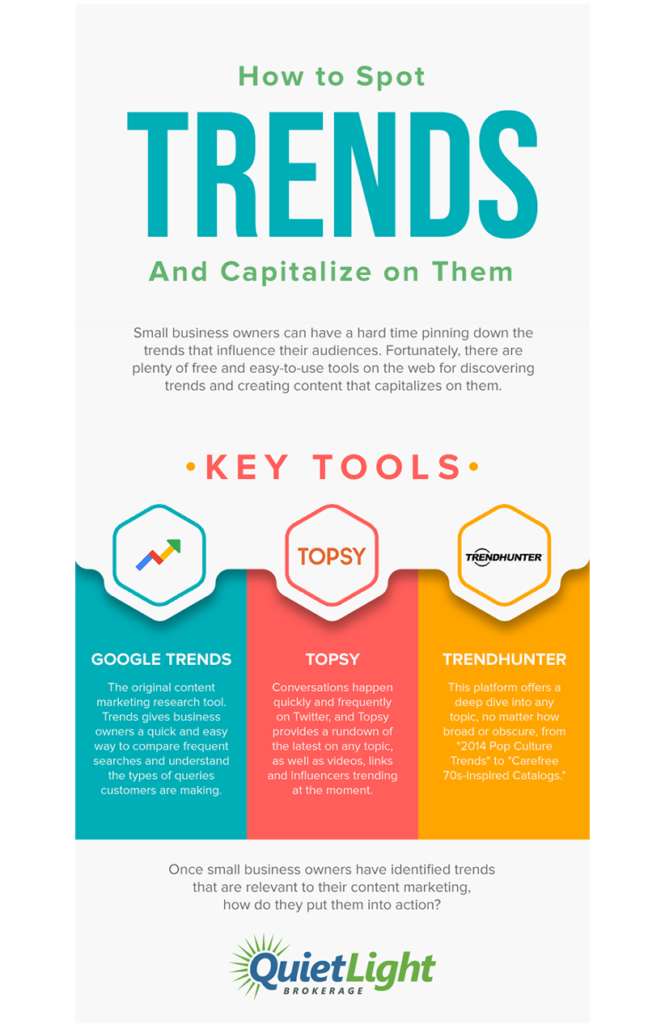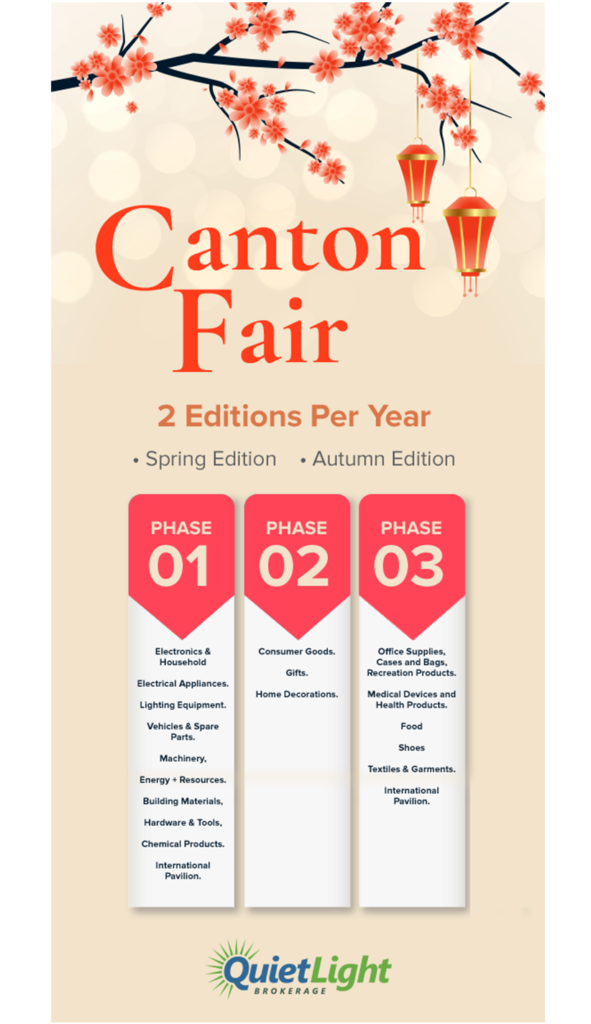Topics:
Never Miss a Beat - Get Updates Direct to Your Inbox
FILTER:


Exit Your Amazon FBA Business Right With these 5 Lessons
By Quiet Light
Sometimes failure is the best teacher in the world of business. No matter how much you think you’ve prepared for managing an eCommerce business, something always seems to crop up. But when you learn how to see these failures not as scars but as lessons, you’ll graduate from the School Of Hard Knocks for a profitable business exit. eCommerce veteran Paul Anderson shares his 5 lessons for exiting your business in style—and it all starts with failing spectacularly.
IN THIS POST
Paul: From A CPA To A Ph.D. In Badassery
Class Is In Session! 5 Lessons To Boost Profitability Before Your Business Exit
Failure Is The Best Teacher For eCommerce Business
Riiiiing, riiiiing! Welcome to the School Of Hard Knocks. Class is now in session. I will be your instructor today. Thank you so much for—WHAM!
Oh, did you feel that? It’s your initiation slap into the School of Hard Knocks. Whether you’re ready for it or not, most entrepreneurs have to learn on the fly. That means getting the wind kicked out of you when you least expect it.
Some entrepreneurs graduate from the School Of Hard Knocks and use that real-world knowledge to sell their successful business in a profitable business exit. Others, sadly, drop out after the first slap to the face. They return to a safe desk job, eating their sad little salad as they dream of what could have been.
But that’s not for you, boss. Gray cubicles and salad are for chumps.
You’re here to make something of your business, which means rolling with the punches and, occasionally, taking a wallop to the face. Over time, you’ve got to accept that entrepreneurship is a double-sided coin: on one side is the elation of success, while on the other side is the sting of failure.


Listen to the Source of this Post:
This blog post is based on a podcast episode that we recently recorded. Listen to the full episode here:This isn’t about letting failure win. It’s about doing your homework, learning from your failures, and eventually graduating from the School Of Hard Knocks. And upon your graduation, you’ll get to sell your eCommerce business for a crapload of money. Sounds nice, right?
Actually, that’s what Paul Anderson did. This eCommerce entrepreneur shares how he traded his soul-sucking CPA job for the thrill and adventure of running his own Amazon business, eventually exiting for a loooooot of money.
So yeah, life’s going to throw you a few punches when you want to build a sellable eCommerce business. But you’ve gotta suck it up and do it anyway if you want a profitable business exit. Follow Paul’s 5 tips to graduate from The School Of Hard Knocks and set up residence on Easy Street by exiting from your business the right way.


Paul: From A CPA To A Ph.D. In Badassery
Like 99.98% of all entrepreneurs, Paul didn’t know what he wanted to be when he grew up. But he knew he liked money and security, so he figured accounting was a safe bet for him to score both. He did what any responsible person would do, which meant Paul spent 10 years jockeying a cubicle as a CPA for Corporate America.
Let’s have a moment of silence for Paul’s poor soul. “Eventually it started to wear me down,” he says.
As you can imagine, the suits and TPS reports and fluorescent lights got old after a while. Paul knew this wasn’t the gig for him, but he wasn’t sure what that meant. After all, you graduate from real college so you don’t have to attend The School Of Hard Knocks, right?
Well, Paul’s an over-achiever and decided to get his Ph.D. from the School Of Hard Knocks anyway. An avid podcast listener, Paul first heard about Amazon FBA in 2016. The episode was talking about tools, like Helium 10 and Jungle Scout, that make Amazon FBA doable.


“I started hearing about Amazon FBA and consumed every podcast about it,” Paul says. A few episodes later, Paul was hooked: he wanted to become an entrepreneur. But that meant building a lifeboat and escaping in the dead of night from his day-job. A profitable, stable day-job, mind you.
But Paul wanted it bad. So bad that he was willing to make it happen.
Instead of paying out the ass for a course or a mentor, Paul winged it. He went all-in as a student of the School Of Hard Knocks, learning everything he needed to start an Amazon FBA biz on the internet. “I never bought a single course. It was all Facebook groups and Reddit forums,” he says. And this was happening while he was gainfully employed, which meant he worked as a CPA by day and chatted with Alibaba suppliers in China by night.
Of course, nothing’s guaranteed in eCommerce, especially when you’re learning from experience. Although Paul’s first venture didn’t work out (more on that in a sec), he says that experience was like paying for the most effective, proven course on the market. After all, nothing’s a better teacher than The Fist Of Failure, right?


Class Is In Session! 5 Lessons To Boost Profitability Before Your Business Exit
Here’s the thing: you can’t run your business forever. You’ll get sick of the responsibility, or want a new adventure, or get sick of your competitors’ BS. Whatever the reason, eventually you’ll need to leave your biz.
Paul ended up with a very successful business exit because of how he structured his biz before his exit. If you want a textbook application of the 4 Pillars Of A Sellable business, pull out your notebook, students. You’re about to get a master class in sellability. Use Paul’s 5 lessons to grow your eCommerce business the right way, streamlining your biz for a more profitable exit.
1. Take Your Blinders Off
Feeling starved for ideas? You can’t see new, shiny ideas for what they are if you’re wearing sunglasses all the time. Paul recommends entrepreneurs, no matter where you are in your business, to stay aware of up-and-coming trends.


But not as they’re happening; that would just make you a copycat. You’ve got to catch the wave before it comes in, which means removing the filters you apply to everyday interactions.
Yup. Instead of passively sitting back and going about your day, look for opportunities. When you’re chatting with the cashier at Target and he says, “Wow, a lot of people sure have been buying these candy bars,” that could be a sign. The School Of Hard Knocks might be giving you a very rare treat! But if you don’t open your mind to the possibilities, you’ll miss out.
Pay attention to everyday conversations and emerging products. Where are the opportunities?
Once you find those opportunities:
- Research them (Google Trends, Helium 10, and Jungle Scout will get you started). Does buyer behavior indicate demand?
- If there’s demand, is it feasible for you to sell your own version?
- How’s the competition? Is there a relatively low barrier to entry?
This is what it takes to sell SKUs that are not only in-line with buying trends, but that will be profitable. And since you want to graduate from the School Of Hard Knocks someday and score a juicy profit with your business exit, you might want to create profitable SKUs.


2. Source Carefully
Now, Paul thought he followed Lesson 1 to a tee. While working his day-job, he came up with what he thought was a winning product. He landed on … wooden stands that hold pour-over coffee cups. Hey, it’s not sexy or anything, but it was on-trend: Paul realized there was an immense demand for pour-over coffee accessories from caffeine-crazed aficionados.
Paul thought, “This is my ticket to freedom! This is my lifeboat! See ya later, suckers.”
Unfortunately, this product wasn’t Paul’s lifeboat; if anything, he saddled himself with a ticket on the Titanic. “I was really pumped. I thought, ‘Here it is!” he laughs.
The issue wasn’t with the idea, but with his execution. Paul invested $5,000 into the business to fund inventory with a supplier he found on Alibaba. Mind you, that was no small sum of money to a man with a day-job. But no risk, no reward; that’s what The School Of Hard Knocks is all about, friend.


So Paul finds what he thinks is a badass supplier on Alibaba. But here’s the issue: this product was made of wood. Somewhere between China to the US, these products were cracking. The quality just wasn’t there, which translated to:
- One-star reviews.
- A crapload of product returns.
- Paul’s garage filling to the brim with unsold product and returns.
Yeowch. As you can probably guess, Paul learned a lot from his first lesson at The School Of Hard Knocks. All in all, he lost $1,000 on his first product. While that’s not great, it could have been much worse.
“Be smarter on your sourcing,” Paul says. Any time you find a new product, think of ways for that product to go wrong. Will that spatula snap in half during transit? Will the lithium battery in your electronics explode in the mail? Will that children’s toy drop f-bombs in front of the kiddos?


Something can always go awry. It’s your job as the biz owner to plan for the worst-case scenario.
Failure Is The Best Teacher—Sourcing Products Correctly
You might think, “Ugh, Paul’s first foray into Amazon didn’t go so well. Maybe he should stick with CPA work.”
Paul did the opposite because he’s not afraid of learning. The $1,000 he lost on his first launch propelled him further: Paul saw the power of Amazon. He realized it was about choosing the right product, and he simply didn’t choose wisely. Instead of fixating on that $1,000 he lost, he chalked it up to experience and moved on.
3 months later, Paul knew he was ready for his next lesson from the School Of Hard Knocks. But this time he wasn’t effing around: he wanted to find a badass supplier who wouldn’t leave him in the lurch. Paul was so gung-ho to find a good supplier that he and his wife actually visited Canton Fair in China. “It helped me to see the culture of China,” Paul says.


And boom, it worked! Paul snagged a better supplier, who he got to meet in-person.
Paul launched his second product in the fall of 2016. Since it was Q4, he was able to take full advantage of the Black Friday craziness on Amazon. He refreshed the Amazon Seller app to see sales finally start to kick off. On the first day, he only sold a handful of units, but after it built momentum, Paul earned several thousand bucks on his best day.
Not a bad recovery, eh?
This time around, the School Of Hard Knocks was a lot kinder to Paul. In fact, this lesson showed him that full-time selling on Amazon was actually possible.
3. Set Up Clean Amazon FBA Financials
Paul kept selling products on the side while he kept his day-job as a CPA. But in 2017, everything came to a head: his eCommerce business was earning fat stacks on Amazon on a daily basis.


Paul knew he had something special on his hands. That’s when he decided to transform this side hustle into a full-fledged business. Fortunately for Paul, the 10 years he put into Corporate America paid off: he used his background as a CPA to position his biz for success.
First of all, Paul let the eCommerce business fund itself. He didn’t have to sell all his possessions to fund purchase orders. No lines of credit were taken out against his house and no credit cards were filled to the max. Nope. Paul made sure the business’s profits could sustain ordering more products. His family didn’t have to worry about starving if Amazon didn’t work out because he still had his CPA job at this point (good thinking, Paul).
But it wasn’t perfect. Paul admits managing inventory and cash flow for a product business is like nailing Jell-O to a tree: it’s nearly impossible.


But what’s not impossible is setting up your biz for success. If you want a profitable business exit, one of the best things you can do is to use documentation to make it transferable. In plain English, that means copying Paul and doing things like:
- Setting up your biz as a professional entity. Get’cho self an LLC.
- Creating separate personal and business accounts. Stop commingling your expenses, folks! It’s so freakin’ messy when you want to sell.
- Hire a pro bookkeeper. That’s right. Paul, the CPA, hired a bookkeeper who specialized in eCommerce business to manage the books.
Paul made these decisions early on in his Amazon FBA business, and he thanks his lucky stars that he set it up correctly from the start. When it came time to sell his biz (which we’ll dive into in a bit), buyers damn near fought each other to buy this eCommerce business. They were offering way more money for the biz because they were so confident in Paul’s setup.


These steps sound boring and painful, and maybe they are, but they’re the to-dos that will set you up for a profitable business exit. Who knows? Maybe you’ll graduate Magna Cum Laude from The School Of Hard Knocks, you smartypants.
4. Keep The Momentum Going
Because Paul’s such a darn smartypants, he didn’t have the usual issues of running an eCommerce business. Nope. He says the most difficult part of running an eCommerce business is: momentum.
You’ve got to remember that the poor guy was working a full-time job while he got his Amazon FBA business off the ground. His goal was to build a badass lifeboat that would give him more freedom. After the first product failed, it was like watching the last lifeboat sink into the icy brine of the ocean.
Womp womp.
Even though Paul’s subsequent products were a bangin’ success, he had no way of knowing that. Doubts crept into his head. You’re not good enough. This will never work. Nobody’s going to buy your crap. If Paul had listened to these creepy voices, it would have killed his motivation then and there. But he didn’t; he kept going .“You have to keep putting one foot in front of the other,” Paul says.


You need to do the same. It might be tough seeing a handful of sales every day, but Amazon works based on momentum. It might be slow at first, but eventually, you’ll see things take off. At that point, you have a full-fledged business, which means it’s time to keep going. “It started slow. And when you have no momentum, it’s hard to implement,” Paul says.
Don’t fret and don’t lose your momentum. Paul stuck with his biz through the rough times and was finally able to say, “Peace out!” to his day-job. “I’d still be sitting at a desk in corporate America right now if I hadn’t kept going,” he says. With the right momentum, your Amazon business can increase sales, boost profitability with the right SKUs, and eventually earn you a better business exit.
5. Build Demand When You Sell Your eCommerce Business
Paul’s Amazon FBA business grew substantially after its humble start in 2016. By 2019, it was a multi-million dollar brand. Dang!


But Paul could read the writing on the wall. It was time to exit his 30-month-old Amazon business for greener pastures. “There are a lot of things spinning through your head,” he says. Selling a business is such a personal decision, but for Paul, it came down to:
- Amazon’s volatility. Would he be able to ride this cash pony all the way through retirement? Probably not.
- His family. When you have kids and a house and a spouse, you can’t take as many risks. Paul needed to diversify his income to protect his fam.
Basically, Paul felt his eggs were in one basket. He might have stuck around if he were a single dude without kids, but when you’re a responsible adult, you’ve got to exit when it’s right for you.
What was interesting about Paul’s business exit is that he created a bidding war for his business. He accomplished this in a few ways:
- Paul demoed his product during his seller interview.
- His financials were squeaky clean.
- He sold while the business was in an upswing.
Because there was such a fierce bidding war for his Amazon FBA business, Paul had a really hard time choosing a buyer. “Picking a buyer was really tough,” Paul confesses. He had both cash and SBA offers, and some of them even offered way more money for the business.


Of the 10 offers he received, Paul decided money couldn’t be the motivating factor. It had to come down to the buyer themselves. Paul looked for buyers with the skills to hit the ground running with the business. “Some people made me feel like, ‘Wow, I can hand this to them and they can run with it immediately,” he says. In other words, he picked people who wouldn’t let The School Of Hard Knocks decimate their dreams. After a lot of thought, Paul ended up selling his business for a tidy sum—and to the right buyer.
Build demand for your business well before your transaction. Focus on profitable SKUs, keep your books immaculate (seriously), and demonstrate value. Paul’s business had a lot of growth potential and that’s what made it so valuable to buyers. You stand a better chance of scoring a profitable business exit with a clean, streamlined eCommerce business.
Plan Life After Graduation
Let’s hop in a time machine and chat with your past-self. In your junior year of college, you probably had a vague idea of what you wanted to do after graduation. But it wasn’t a pants-on-fire emergency or anything.


The School Of Hard Knocks works in a similar way. As you’re grinding to grow your business, you aren’t thinking about your business exit. Hell, you’re just trying to make it through every painful lesson, avoiding the Fist Of Failure at all costs. But graduation is a-comin’, and that means you need to have a plan not just for your business, but for your life after your exit. That’s like lining up a job after college graduation; it’s the smart thing to do.
So, what are you going to do after you graduate from The School Of Hard Knocks?
Paul’s living it up in his post-exit life. He no longer has to work 50+ hours a week in a cubicle because the business exit funded leaving his day-job. Plus, he gets to be a dad to his young son.
But you can’t sip margaritas on the beach, play with your kids, and live like a trust fund baby forever. You’ve got to have a real plan for how you’ll spend your time. And like any entrepreneur knows, that means going on to the next great, big project.


For Paul, that means getting away from product-based businesses and exploring content sites. Right now he’s building WealthFam.com, a blog about financial independence and online business. Paul’s able to marry his experience as a CPA with what he learned in the School Of Hard Knocks on running a business.
Paul’s still growing the site, but he has plans to monetize it through:
- Affiliate links
- Brand sponsorships
- Good ol’ advertisements
Paul’s also working as an Amazon business consultant for local companies. He didn’t earn an ungodly amount of cheddar from his business exit that would help him, say, never work again, but it did give him the luxury of time to figure his life out.
What about you? What’s your next step? Yeah, retiring on a beach is relaxing and all, but that’s not how your brain works. You’ve got a lot of life left to live, so make a plan for how you’ll live post-exit.


Failure Is The Best Teacher For eCommerce Business
The School Of Hard Knocks is a strict mistress. It’s killed a lot of Amazon FBA entrepreneurs’ hopes and dreams. But when you take your blinders off, watch your product sourcing, set up clean financials, embrace momentum, and build demand for your business, you can escape the rat race and enjoy a profitable business exit.
But remember, create a post-grad plan. What’s life like for you once you graduate from The School Of Hard Knocks? Take some time to brainstorm your next move. Caps off to you, graduate. Congrats on earning your Ph.D. in Badass Business.





